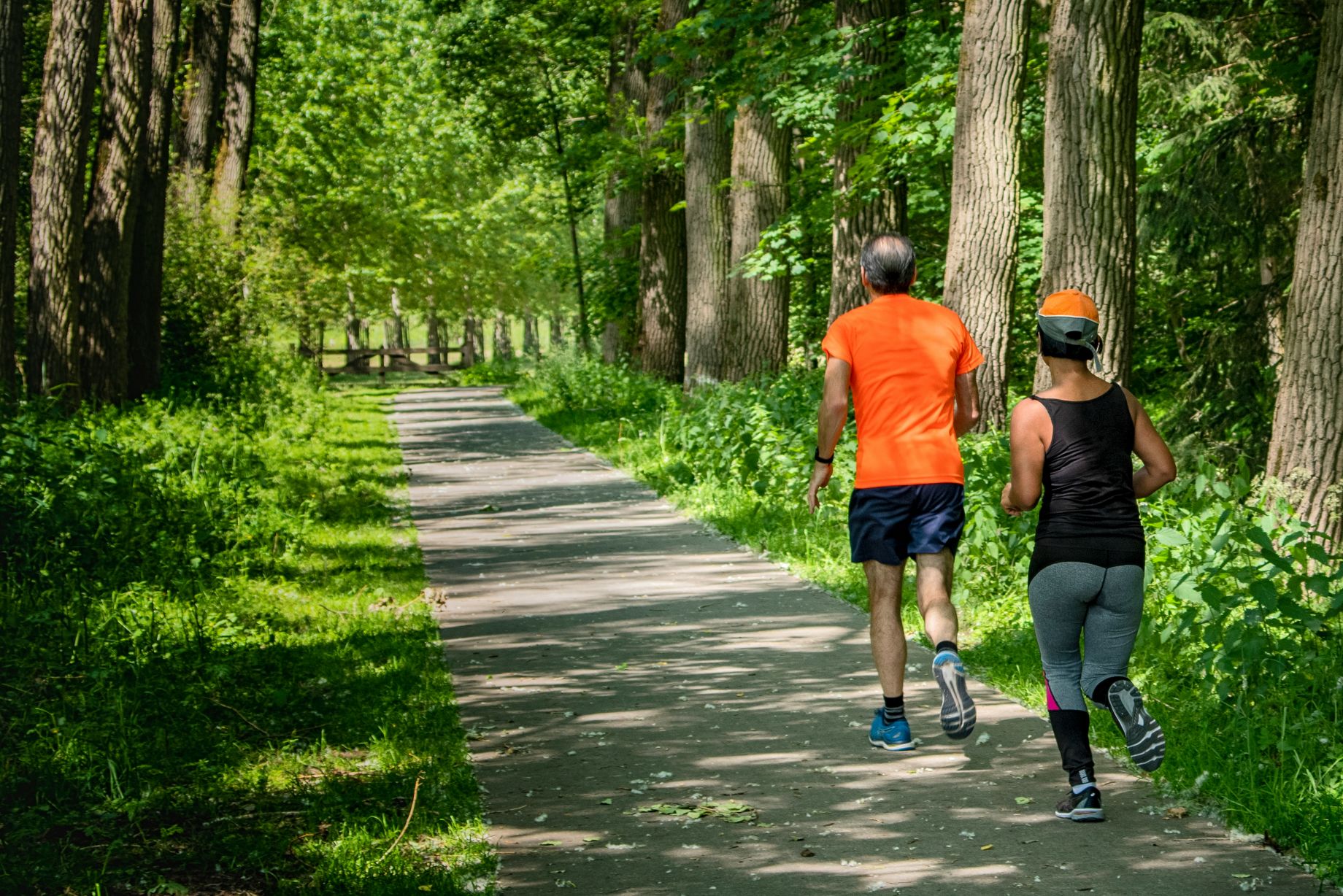How good sleep boosts our workouts
We’ve all heard exercise can help us sleep better – but can sleep help us exercise better?
You're getting older, so all that exercise you did in your younger years has to slow down, right? Wrong. As we age, it's totally normal to not have the stamina we once did. Our bodies change, we change. But that doesn't mean we're destined to spend the rest of our years on the sofa.
In fact, it should be the opposite. Staying active as an older adult means you can maintain independence and also delay (or even prevent) health problems that come with age. It sounds morbid, but inactivity is associated with one in six deaths in the UK – you have the power to change that.
"Movement is life's greatest anti-ageing treatment," says Dr Hussain Al-Zubaidi, Physical Activity Champion at the Royal College of GPs and Trustee for Think Active.
There's no avoiding it: ageing results in a decline in physical function. This can cause pain, stiffness, loss of flexibility, fatigue, and weakness, says Dr Al-Zubaidi.
For women, it can be even harder as oestrogen levels drop during menopause. Oestrogen helps maintain muscle mass and strength so, as these levels wane, women may struggle to keep a healthy weight.
The good news? How we move our bodies can play a huge part in slowing that decline.
It helps you live longer
"We don't stop moving because we get old, we get old because we stop moving," says Dr Al-Zubaidi.
A UK-based study of amateur cyclists aged 55-79 found those who exercised regularly didn't experience age-related muscle loss, or age-related body fat and cholesterol increases. This "debunks the assumption that ageing automatically makes us frailer", said the authors.
It reduces the chance of falls
You're more likely to experience a fall as you age, because you may struggle with balance, muscle weakness and vision loss. Falls can be fatal, which is why the Chief Medical Officer says balance and flexibility exercises are essential for older adults at least twice a week.
So, why move? Medical research shows regular physical activity can improve mobility and balance in older adults, reducing the risk of falls and helping you maintain independence. Lis, from Age UK, says a fear of falling – or having another fall – is something that gets people into fall prevention classes that build strength and balance.
It reduces loneliness through socialising
"We know from research that for older people, it's hard to get motivated, but when they do go out – they feel better for it," says Lis Boulton, Policy Manager at Age UK.
The older you get, the more vulnerable you are to loneliness, which can have a serious effect on health. The main driver for older people to get active is about enjoyment and meeting new people says Lis. "That social side of things really gets people going – and gets people staying," she says. "It's really important for them – especially for women."
It improves your heart health
Regular exercise can improve heart health by lowering blood pressure, reducing the risk of heart disease, and improving circulation. Older adults who exercise regularly have a lower risk of developing cardiovascular problems, studies show. "Any amount of physical activity, no matter how long or short, is good for your heart health whatever your age," says Sindy Jodar, Senior Cardiac Nurse at the British Heart Foundation.
"Aerobic exercise like walking or running can help the heart and circulatory system work better through lowering blood pressure, with muscle strengthening exercises – like yoga or Pilates – helping to improve flexibility or balance." If you have a heart condition, speak to your doctor about the type of exercise that's best for you, she adds.
It's good for your brain
Being physically active is a great way to protect your brain health, says Katie Puckering, Information Services Manager at Alzheimers Research UK – and it's never too late to get started. "In fact, scientists have found that doing physical activity in old age can help boost our memory and thinking skills," she says. Fancy a dance? The greatest benefit for brain health has been found in physical activities which require cognitive processing, in particular learning a skill like dancing.
The simple message is do a little more than what you're doing already, says Dr Al-Zubaidi. Do something fun. Do something you enjoy. Do something you feel motivated to maintain.
It's good to try and do some sort of physical activity every day, recommends the NHS, and break up long periods of not moving with some activity. That doesn't have to mean vigorous daily HIIT workouts – it can be anything that moves your body, in any way you can. Think outside the box: it could be gardening, walking, or swimming.
People assume there are risks attached to exercising as an older adult, but there are many risks of not exercising, says Dr Al-Zubaidi. "Look to start low and go slow," he says. "Improving your condition involves putting stress on the system, allowing it to recover and repeating the process."
If you struggle with your mobility or movements – seek support from a physiotherapist or CIMSPA qualified personal trainer.
Whatever you do, keep moving. You've got this.
This article was written by The Body Coach content team.
